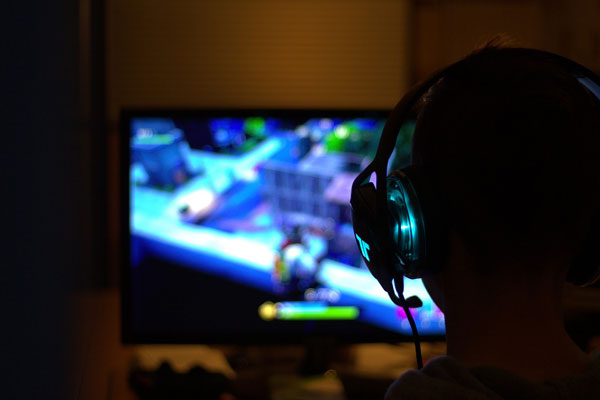Study finds video games may enhance specific cognitive skills

[A photo of a gamer. Photo Credit to Pixabay]
New research challenges prevailing views, suggesting certain video games may enhance cognitive functions, whereas regular exercise does not improve brain performance.
This groundbreaking research was conducted jointly by Western University in Canada and the Science and Industry Museum in the UK as part of the Manchester Science Festival.
These findings, described as “astonishing” by researchers, challenge the widespread belief that exercise enhances learning, attention, perception, and memory.
The research reveals that gamers score higher in memory, attention, and reasoning than non-gamers.
"Playing video games is associated with cognitive improvements but not with better or worse mental health, while physical activity relates to mental health improvements but not cognitive enhancements," explains Professor Adrian Owen, a prominent neuroscientist at Western University.
The study examined data from about 1,000 adults aged 18 to 87, who completed the study out of 2,000 participants worldwide.
Researchers assessed participants' health, lifestyle, educational level, and employment status through surveys, followed by cognitive tests that measured memory, attention, reasoning, and language skills.
Study subjects reported their weekly gaming hours over the past year.
The results were striking: frequent gamers who played more than five hours per week performed cognitively similar to individuals 13.7 years younger than their actual age.
Those gaming less than five hours showed results similar to individuals 5.2 years younger.
On the mental health front, participants meeting the World Health Organization (WHO)'s recommendation of over 150 minutes of physical activity per week were 12% less likely to report depression and 9% less likely to report anxiety symptoms.
However, the study found that those not meeting the WHO activity guidelines had double the risk of experiencing depression and a 1.5 times higher risk of generalized anxiety disorder.
Interestingly, more than 150 minutes of weekly exercise showed no impact on cognitive functions.
Supporting these findings, a January 2024 study published in The Lancet found that video games can help manage ADHD symptoms in children.
The research, led by Professor Scott H. Collins, demonstrated that using therapeutic games as an additional treatment improved children's attention and reduced the risk of side effects.
Traditional ADHD medications are only effective when administered and may not significantly reduce daily life disruptions caused by ADHD symptoms, the study notes.
The research also highlighted concerns about caregiver preferences and the potential misuse of these drugs, which make them unsuitable for some patients.
Unlike traditional treatments, game-based therapy does not involve injections or taking pills.
It offers instant feedback, motivating patients and affecting memory and executive functions, while helping ADHD patients, particularly with multitasking challenges.
Despite these positive findings, the addictive nature of gaming still receives negative attention.
In 2019, the WHO recognized 'gaming disorder' as an official disease.
Research conducted at Samsung Seoul Hospital by Professor Choi Chang-sik, utilizing brain function MRI and EEG examinations, analyzed the effects of internet gaming on the brain, with results published in the Journal of Behavioral Addictions.
The study found that participants aged 18 to 26 undergoing treatment for internet gaming addiction showed increased activity in the frontal and parietal lobes and decreased amplitude in response to auditory stimuli.
Furthermore, the right inferior temporal gyrus and orbital gyrus showed a proportional response to stimuli, while the left hippocampus and right amygdala showed an inverse response, indicating that accumulated gaming habits and emotional memories can impair hippocampal and amygdalar functions.
While esports and internet gaming have become major cultural industries in South Korea, responsible for about 70% of the country's content exports, debates about their effects on the brain continue.
These collective findings suggest the need for a reevaluation of how people view both physical activity and video gaming in terms of mental and cognitive health.

- Sunwoo Park / Grade 10
- Korea International School Jeju

![THE HERALD STUDENT REPORTERS [US]](/assets/images/logo_student_us.png)
![THE HERALD STUDENT REPORTERS [Canada]](/assets/images/logo_student_ca.png)
